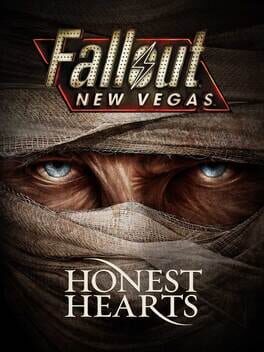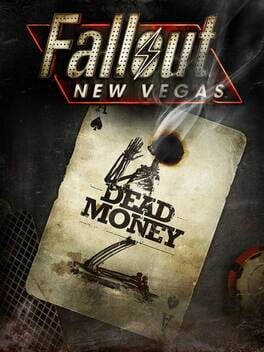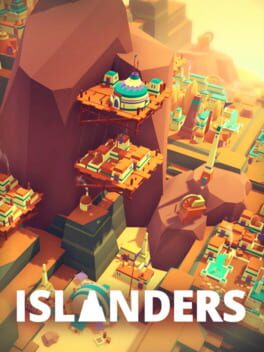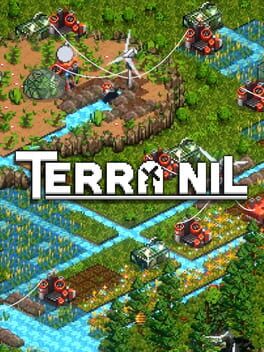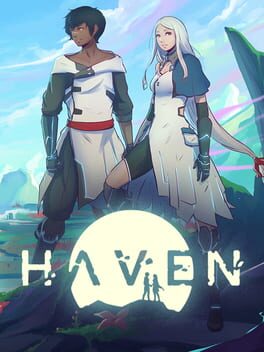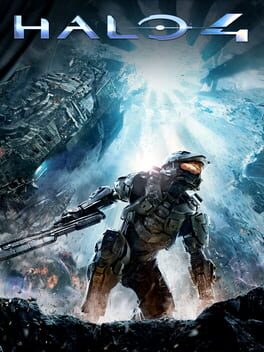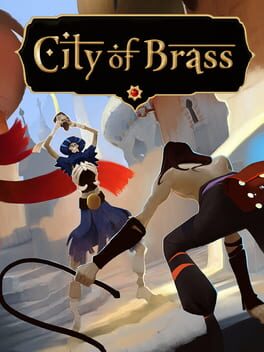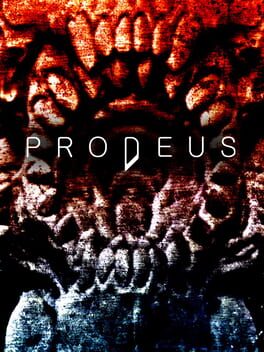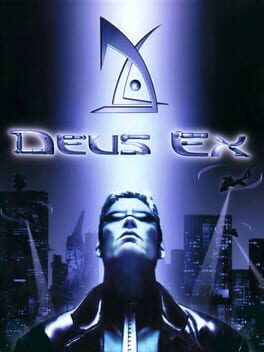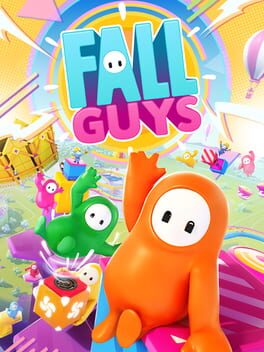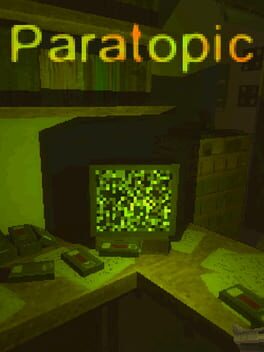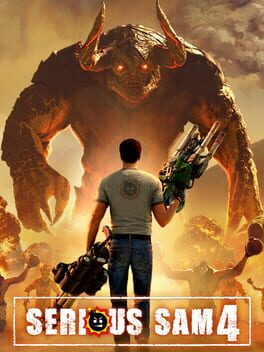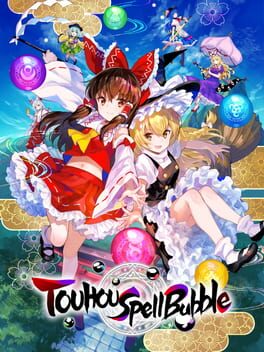Cakewalking
I'm revisiting New Vegas and doing my first new playthrough since game's release in 2010 which makes it time to check what those DLCs were all about. Ten hecking years later!
So far it's been a hit. In a way this DLC is Obsidian's school of doing Operation Anchorage while retaining the strengths of Fallout's systems. Dead Money also strips player off safety of accumulated equipment and directs them the path of linear exploration of a pre-nuclear world setting with very few distractions on the way, except it actually delivers on all fronts. The richness of New Vegas problem solving is still present, but opressiveness of environment and initial resource draught leads to a progression that's more coolheaded and cautious than usual. The combat never reaches the tightness of a proper survival horror title, but ghosts still make for some of the best encounters in the game by utilizing hard-hitting yet dodgeable projectiles as weapons and actually making Fallout's ridiculous limb destruction system matter in combat.
While the act of playing is pretty solid it's writing that manages to create real stakes here. Sierra Madre's history is confusing and bizarre, it's another case of great New Vegas world building through the mix of environmental storytelling, terminal notes from the past and character dialogue that gradually sheds light on the playstage . The cast of people you are unwillingly forced to cooperate with is, for the lack of better world, brilliantly broken, and exploring their pasts and problems is even more onerously interesting than the casino itself. It's all very engaging stuff and my only little issue would be just how ridiculously world-disrupting the technology of this DLC is which directly plays into antagonist motives, but it's not the first time you have to suspend your disbelief in Fallout.
Overall? High mark for a piece of downloadable content and starting Honest Hearts already made me wonder if other expansions in the pack manage to reach it.
So far it's been a hit. In a way this DLC is Obsidian's school of doing Operation Anchorage while retaining the strengths of Fallout's systems. Dead Money also strips player off safety of accumulated equipment and directs them the path of linear exploration of a pre-nuclear world setting with very few distractions on the way, except it actually delivers on all fronts. The richness of New Vegas problem solving is still present, but opressiveness of environment and initial resource draught leads to a progression that's more coolheaded and cautious than usual. The combat never reaches the tightness of a proper survival horror title, but ghosts still make for some of the best encounters in the game by utilizing hard-hitting yet dodgeable projectiles as weapons and actually making Fallout's ridiculous limb destruction system matter in combat.
While the act of playing is pretty solid it's writing that manages to create real stakes here. Sierra Madre's history is confusing and bizarre, it's another case of great New Vegas world building through the mix of environmental storytelling, terminal notes from the past and character dialogue that gradually sheds light on the playstage . The cast of people you are unwillingly forced to cooperate with is, for the lack of better world, brilliantly broken, and exploring their pasts and problems is even more onerously interesting than the casino itself. It's all very engaging stuff and my only little issue would be just how ridiculously world-disrupting the technology of this DLC is which directly plays into antagonist motives, but it's not the first time you have to suspend your disbelief in Fallout.
Overall? High mark for a piece of downloadable content and starting Honest Hearts already made me wonder if other expansions in the pack manage to reach it.
2019
A little city builder which is more of a space optimization game where in order to progress you are required to hit a certain quota of adjacement bonuses. It's more captivating than this explanation would lead to believe, and few failed attempts to create a garden city will launch you the way of very natural and satisfying learning curve of hindsight in urban planning. It didn't steal many hours of my time, but I couldn't put it down until my little picturesque town was erected in all its glory
2019
2020
Not sure what to make out of this. I wish I could love a game with such a strong sense of style and soundtrack so magical. Interactions of Kay and Yu are very well written and the way it tends to build the alien world through natural conversations of two people in love could be nothing short of remarkable. Sadly the gameplay here is a mistake and serves only as an obstacle to climb before drip feeding you another sweet, but short and most likely insubsustantial conversation. After 3 hours the game simply didn't do enough to nurture a will to climb this wall. The soul is here, it just doesn't come together.
2012
Halo 4 is hauled as some sort of disease that put the series to grave bed so I expected the worst. Turns out it's not all bad?
Sure, there is quite a few of unfortunate mechanical problems to name. Covenant AI is noticeably downgraded and there are balance problems with lower tier enemies that make their presence more of a hassle on legendary difficulties than they should be. On the other hand, prometheans are way overtuned. I understand the challenging task of creating a new commando unit that would feel different from elites, brutes and flood, so knights were given a large kit to give them the edge. They have fast recharging shields, they can teleport to get out of danger and screw with your positioning, they use a slew of new promethian weapons and they have strong melee attacks to boot. But this lack of a clear weakness made them the least interesting enemy to fight, making shoot until they die the only applicable approach to deal with them. Also, heavy knights with canons deserve separate fuck you mention as whether you survive the burst from their shots depends entirely on a coin toss – gladly there are like three of them over the course of campaign. Another problem cropped up where I didn't expect with the change of gun sounds, making them sound less distingushiable and messing up the careful soundscape Bungie created for previous games: the audio isn't as much of a trusted source of information on battlefield anymore.
This growing stock of little problems is a bummer since there are things to like in Halo 4. The art direction is enchanting, with massive structures, giant machinery and overwhelming bloom instilling a reminder of how puny your little human presence is compared to the threats you deal with. There are some genuinely cool and memorable missions here with combat scenarios that do stick up in memory. It plays that Halo card masterfully making you enter the flaring up battle between competing enemy sides, giving you the role of a decisive third party that sweeps the field. And lastly, the story achieves levels of emotional complexity you just don't expect a Halo game reach, giving Chief's character more nuance than he's ever gotten. So, underneath many problems there's actually a good game which probably just needed another round of refinement and playtesting in order to get to that degree of a satisfying Halo campaign. Sadly it just isn't quite there yet.
Sure, there is quite a few of unfortunate mechanical problems to name. Covenant AI is noticeably downgraded and there are balance problems with lower tier enemies that make their presence more of a hassle on legendary difficulties than they should be. On the other hand, prometheans are way overtuned. I understand the challenging task of creating a new commando unit that would feel different from elites, brutes and flood, so knights were given a large kit to give them the edge. They have fast recharging shields, they can teleport to get out of danger and screw with your positioning, they use a slew of new promethian weapons and they have strong melee attacks to boot. But this lack of a clear weakness made them the least interesting enemy to fight, making shoot until they die the only applicable approach to deal with them. Also, heavy knights with canons deserve separate fuck you mention as whether you survive the burst from their shots depends entirely on a coin toss – gladly there are like three of them over the course of campaign. Another problem cropped up where I didn't expect with the change of gun sounds, making them sound less distingushiable and messing up the careful soundscape Bungie created for previous games: the audio isn't as much of a trusted source of information on battlefield anymore.
This growing stock of little problems is a bummer since there are things to like in Halo 4. The art direction is enchanting, with massive structures, giant machinery and overwhelming bloom instilling a reminder of how puny your little human presence is compared to the threats you deal with. There are some genuinely cool and memorable missions here with combat scenarios that do stick up in memory. It plays that Halo card masterfully making you enter the flaring up battle between competing enemy sides, giving you the role of a decisive third party that sweeps the field. And lastly, the story achieves levels of emotional complexity you just don't expect a Halo game reach, giving Chief's character more nuance than he's ever gotten. So, underneath many problems there's actually a good game which probably just needed another round of refinement and playtesting in order to get to that degree of a satisfying Halo campaign. Sadly it just isn't quite there yet.
2018
I feel like at some point rogue-likes begin to make sense only as sandboxes of many interacting and cooperating systems that play out completely differently every time pseudo-random generator arranges the same pieces in a different order. Otherwise you just get an unfocused shallow game that will always lose to fidelity of human craft for single player or invention of a human opponent for multiplayer. It will be a good cerebral distraction at best.
City of Brass is commendable for attempting this kind of design, employing the sensibilities you can find in immersive sims. It's got some good ideas too in the form of a multifuntional whip that serves as your hands-off interaction tool setting little environmental dominos in motion by activating traps, pulling objects and foes towards you, knocking enemies off and even serving as mobility option by becoming a context sensitive grappling hook. Sadly it's a bit too shallow and the most satisfying thing you can do is pushing enemies into traps or blow explosive barrels around them; these environments simply have nothing on Noita or Spelunky where a little push can set an entire train of chain reactions in motion. Another thing I found in conflict with its design is health system: you don't get many opportunities to refill hearts thus you HAVE to go about it safe making sanitized non-experimental playstyle the preffered way to play the game that in theory should encourage player's expression and knowledge.
Overall I fould City of Brass to be another rogue-like that could work better as hand-crafted linear experience where all the interesting mechanics and interactions could be refined and utilized for actually interesting gameplay situations. Still, it was 90% off and I got a few hours of joy that well realized arabian nights setting brings, and experienced an interesting game design experiment, albeit not a very successful one.
City of Brass is commendable for attempting this kind of design, employing the sensibilities you can find in immersive sims. It's got some good ideas too in the form of a multifuntional whip that serves as your hands-off interaction tool setting little environmental dominos in motion by activating traps, pulling objects and foes towards you, knocking enemies off and even serving as mobility option by becoming a context sensitive grappling hook. Sadly it's a bit too shallow and the most satisfying thing you can do is pushing enemies into traps or blow explosive barrels around them; these environments simply have nothing on Noita or Spelunky where a little push can set an entire train of chain reactions in motion. Another thing I found in conflict with its design is health system: you don't get many opportunities to refill hearts thus you HAVE to go about it safe making sanitized non-experimental playstyle the preffered way to play the game that in theory should encourage player's expression and knowledge.
Overall I fould City of Brass to be another rogue-like that could work better as hand-crafted linear experience where all the interesting mechanics and interactions could be refined and utilized for actually interesting gameplay situations. Still, it was 90% off and I got a few hours of joy that well realized arabian nights setting brings, and experienced an interesting game design experiment, albeit not a very successful one.
2020
Didn't want to write this review based on the early access version, but I'm really not sure what's with negativity here. Prodeus is quite fine, even good actually. It's boomer comfort food, so initially I have also been wondering how it's marginally different from flashy Doom wads, but strenghts of it became apparent as I progressed.
The level design is pretty tight, encounters are well paced and there's great variety to how they flow level to level. From descending vertical floors to vast horizontal fields, I had plenty of neat gameplay moments simply due to good enemy spawns and level layouts. The weapon balance so far has been some of the best in the genre as I found situations where every weapon out of initial 11 has been particularly useful. Even plasmagun which is usually just an underwhelming replaceable projectile assault rifle has a neat quirk that makes the gun very handy if you need to shoot something down from safety behind the corner.
If I had to nitpick it that would be for lacking visual clarity in enemy silhouttes, which is not that bad usually, but in a game about enemy prioritization and space management it led to a few frustrating moments when I confused a shotgunner with a simple zombie or didn't notice an approaching pressure demon. Also weapons requiring reloading went against my instincts initially, but it was fine once I adjusted.
Verdict so far? Pretty cool. We'll see how it goes once the full game is out.
The level design is pretty tight, encounters are well paced and there's great variety to how they flow level to level. From descending vertical floors to vast horizontal fields, I had plenty of neat gameplay moments simply due to good enemy spawns and level layouts. The weapon balance so far has been some of the best in the genre as I found situations where every weapon out of initial 11 has been particularly useful. Even plasmagun which is usually just an underwhelming replaceable projectile assault rifle has a neat quirk that makes the gun very handy if you need to shoot something down from safety behind the corner.
If I had to nitpick it that would be for lacking visual clarity in enemy silhouttes, which is not that bad usually, but in a game about enemy prioritization and space management it led to a few frustrating moments when I confused a shotgunner with a simple zombie or didn't notice an approaching pressure demon. Also weapons requiring reloading went against my instincts initially, but it was fine once I adjusted.
Verdict so far? Pretty cool. We'll see how it goes once the full game is out.
2000
Monumental, uncomfortable and humane, Deus Ex used to be the biggest omission from my gaming experience and I finally sat down to play it in 2020, the year when game's prodigious far sight reached terrifying heights.
It is still to this day a model example of fantastic game design aided by visual coherence. Early 3D look leads to no visual clutter, making all important details and interactables pop and catch the eye, guiding you through complex environments with invisible hand. Aspects like limited inventory space or aim reticle shrinking when you stand still seem constraining at first, but they teach you punctuality and preciseness, leading to better understanding of environment, power and available resources. From the bumpy beginning Deus Ex nurtures you to do measured choices when dealing with problems which carries from gameplay to story, and you'd be pressed to find a game that does it so seamlessly.
There was a certain moment though when it's all clicked. The note about partitioning New York into segregated blocks to counter the terrorist threat hit way too close to home. It reminded about my own country's safety theatre. How with an excuse to prevent attacks the government tightened up the security in public places in a way that probably won't be too helpful against terrorism, but is very handy to keep surveillance and inspection of people while also implanting the idea of constant danger in minds of populace. And that's... exactly what was going on in Deus Ex. And they predicted this development back in 2000. Kind of an impressive prognosis, isn't it?
That's the power of Deus Ex you see everyone talking about. In bold strokes it makes assumptions about the future which land eerily close to reality, and this state of artful hyperrealism creates an incredible sense of investment. It's quite rare for a game to make me look in every note, read every e-mail and diary. Even rarer when a game manages to have me seek exposition, not dread it. I just couldn't get enough of this world and wicked reflections of us it manages to create.
Of course it's still a game, an entertainment. It's dumb, self-aware, it's full of silly video game things and it doesn't want to be taken seriously. Down to the core Deus Ex is still just a incredibly fun and campy adventure of a lovable secret agent untangling the conspiracy of goofy villains whom you love to hate. But it also wishes to enrich and challenge your worldviews like some of the best written media does. And that's undoubtedly very special.
It is still to this day a model example of fantastic game design aided by visual coherence. Early 3D look leads to no visual clutter, making all important details and interactables pop and catch the eye, guiding you through complex environments with invisible hand. Aspects like limited inventory space or aim reticle shrinking when you stand still seem constraining at first, but they teach you punctuality and preciseness, leading to better understanding of environment, power and available resources. From the bumpy beginning Deus Ex nurtures you to do measured choices when dealing with problems which carries from gameplay to story, and you'd be pressed to find a game that does it so seamlessly.
There was a certain moment though when it's all clicked. The note about partitioning New York into segregated blocks to counter the terrorist threat hit way too close to home. It reminded about my own country's safety theatre. How with an excuse to prevent attacks the government tightened up the security in public places in a way that probably won't be too helpful against terrorism, but is very handy to keep surveillance and inspection of people while also implanting the idea of constant danger in minds of populace. And that's... exactly what was going on in Deus Ex. And they predicted this development back in 2000. Kind of an impressive prognosis, isn't it?
That's the power of Deus Ex you see everyone talking about. In bold strokes it makes assumptions about the future which land eerily close to reality, and this state of artful hyperrealism creates an incredible sense of investment. It's quite rare for a game to make me look in every note, read every e-mail and diary. Even rarer when a game manages to have me seek exposition, not dread it. I just couldn't get enough of this world and wicked reflections of us it manages to create.
Of course it's still a game, an entertainment. It's dumb, self-aware, it's full of silly video game things and it doesn't want to be taken seriously. Down to the core Deus Ex is still just a incredibly fun and campy adventure of a lovable secret agent untangling the conspiracy of goofy villains whom you love to hate. But it also wishes to enrich and challenge your worldviews like some of the best written media does. And that's undoubtedly very special.
2020
2018
2019
2020
Four levels in. Weapons felt great to shoot and old enemies look pretty fresh, but everything else is just in such a rough alpha state it bogs my mind how this game was released to the public. The writing is dang awful. The levels are either linear claustrophobic hallways or football fields of absolutely nothing, there's just no sense of space and pacing in level design. There wasn't a single fight that got me excited by its intensity and scale. The "fresh" things so far are some new terrible enemy types, and unnecessary skill tree that only serves to gate you from abilities that should be in your base kit. There's just nothing new and interesting the game brings to the table which leaves me wondering why the heck SS4 even needed to exist. But even more pressing question is, what the hell happened to Croteam for the game to release in this state? And how it bodes for the supposed The Talos Principle sequel?
2020
This game is betrayed by very steep price, Switch exclusivity and no online capabilities, but at its core this is one of the best VS puzzlers out there, not just Touhou games. The learning curve is pleasant, mechanics are very creative and great kinesthetics makes executing large rhythm combos hit brain with trucksloads of serotonin. There's a certain rubberband quality to the game's flow which makes battles very dramatic, and I see this as an aspect that should be ensued by all great puzzlers.
What I didn't expect is how cool the story is? There's no high stakes in play or any hugely dramatic events, but it nicely explores the concept of "what if Gensokyo was engulfed in competition fad" and makes Touhou characters go through some fun and heartfelt interactions without turning them into rote memes and stereotypes. There's even little perspective play as you go through Marisa and Reimu routes and see their sides to interactions that the other character didn't explore. It's simple, but rad, exactly the type of story I wish fangames told more often.
Still, this is not an affordable game with very niche appeal that you can't even play online, and on this matter I cannot recommend it to everyone. It pushed all the right buttons for me though.
What I didn't expect is how cool the story is? There's no high stakes in play or any hugely dramatic events, but it nicely explores the concept of "what if Gensokyo was engulfed in competition fad" and makes Touhou characters go through some fun and heartfelt interactions without turning them into rote memes and stereotypes. There's even little perspective play as you go through Marisa and Reimu routes and see their sides to interactions that the other character didn't explore. It's simple, but rad, exactly the type of story I wish fangames told more often.
Still, this is not an affordable game with very niche appeal that you can't even play online, and on this matter I cannot recommend it to everyone. It pushed all the right buttons for me though.
2018
